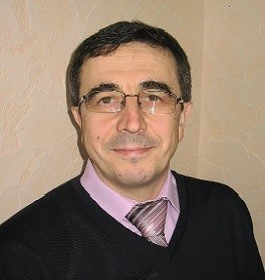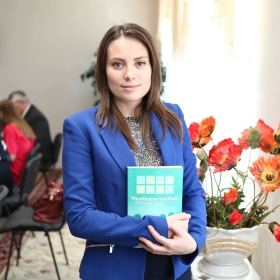Pregnancy calculator
Select and
of your last menstrual period
of your last menstrual period
What is medical abortion via telemedicine?
Medications used for medical abortion and how they work
What to expect after administering the abortion medications?
Medical abortion is a nonsurgical method for terminating an unwanted pregnancy, recommended by the World Health Organization as being effective and safe. Medical abortion is a procedure in which pills are used to induce abortion. These pills can be taken in a medical facility, but the majority of pregnant people prefer to take them at home. Studies demonstrate that home administration of abortion medications is safe.
Medical abortion consists of two steps. In the first step, you take a pill called mifepristone, which stops the pregnancy from growing. In the second step, you take a medicine called misoprostol, which causes cramping and bleeding to empty your uterus.
Medical abortion consists of two steps. In the first step, you take a pill called mifepristone, which stops the pregnancy from growing. In the second step, you take a medicine called misoprostol, which causes cramping and bleeding to empty your uterus.
Medical abortion is highly effective. Efficacy of the method is on average around 95-98% and depends on the correct administration of abortion medications and the gestational age.
Medical abortion is also very safe. Serious risks, such as heavy bleeding or infection, are rare. Very rarely does a pregnant person require hospitalization or a blood transfusion following medical abortion. In some cases, the following adverse reactions may arise: nausea, vomiting, headache, diarrhea, fever. These are short-term side effects and tend to disappear without the need for additional treatment.
Medical abortion does not have any effects that could put your reproductive health in danger!
Medical abortion is also very safe. Serious risks, such as heavy bleeding or infection, are rare. Very rarely does a pregnant person require hospitalization or a blood transfusion following medical abortion. In some cases, the following adverse reactions may arise: nausea, vomiting, headache, diarrhea, fever. These are short-term side effects and tend to disappear without the need for additional treatment.
Medical abortion does not have any effects that could put your reproductive health in danger!
To have an in-person medical abortion, you would go to a clinic that offers abortion services for a consultation with a doctor. If you meet the necessary criteria, the doctor provides you with a prescription to obtain the medications from a pharmacy.
A medical abortion via telemedicine involves all the same steps and procedures, but you are counseled by a provider via telephone or videoconference. Then the abortion pills can be obtained from a pharmacy in your community or they are sent to you via mail.
A medical abortion via telemedicine involves all the same steps and procedures, but you are counseled by a provider via telephone or videoconference. Then the abortion pills can be obtained from a pharmacy in your community or they are sent to you via mail.
- After you have taken a pregnancy test and confirmed you are pregnant, you will receive a consultation from a certified gynecologist via telephone or videoconference.
- Next, you will obtain the medications from a pharmacy in your community using a prescription written by your provider. If you do not have access to a pharmacy, we will send a package with the medications via mail. At any moment throughout this process, you can contact your doctor if you have questions or concerns.
- Evaluation of the success of the procedure will take place one week later via telephone or videoconference, based on questions provided by your doctor. If further treatment is needed, your doctor will help you obtain it.
- Four weeks after administering the medications, you will take another pregnancy test for a final evaluation of the abortion outcome.
Medical abortion via telemedicine is just as safe as an in-person medical abortion. The service has been proven safe by several scientific studies. For example, a study conducted by Gynuity Health Projects on medical abortion via telemedicine services being offered in the United States has demonstrated promising results. Data for 171 women showed a high rate of efficacy (94%). Only two patients required emergency care, but it was determined these patients would have needed emergency care if the service were provided in person. A large majority of women reported that they were very satisfied or satisfied with the service. 86% declared they would prefer medical abortion via telemedicine if they needed to terminate a pregnancy in the future and 96% said that they would recommend the service to a friend or family member in need of abortion.
In addition, the international non-profit organization Women Help Women has been providing medical abortion via telemedicine services for many years, thus helping women living in countries where access to abortion is limited.
Ultimately, if you follow you provider’s instruction, this service will be just as safe and effective.
In addition, the international non-profit organization Women Help Women has been providing medical abortion via telemedicine services for many years, thus helping women living in countries where access to abortion is limited.
Ultimately, if you follow you provider’s instruction, this service will be just as safe and effective.
Yes, information provided by you to your doctor will be kept confidential. You will receive a code by which we will be able to identify you. No personal identifiable information about you will be shared with anyone outside of our team.
Medical abortion via telemedicine has several potential advantages over an in-person abortion:
- You don’t have to go in person to a clinic to have the abortion, which may make the service more convenient and less costly. You don’t have to pay for transportation to the clinic, miss work or leave your children with a nanny.
- In addition, you can schedule a consultation via telephone or videoconference at a time that is convenient for you. Scheduling the consultation could be faster than if you were to go to a clinic in person. This increases the efficiency of the procedure, allowing it to take place earlier in pregnancy.
- Medical abortion via telemedicine may be more private because you can consult with one provider from your home throughout the process.
In order to be eligible for medical abortion via telemedicine, you should meet all the criteria for in-person medical abortion. These include:
- Unwanted pregnancy and a personal desire (without being pressured) to terminate it via medical abortion.
- Gestational age less than or equal to 9 weeks.
-
Absence of the following contraindications:
- Allergy to mifepristone, misoprostol
- Severe anemia or inherited porphyria
- Blood coagulation disorders, hemostatic disorders
- Chronic adrenal failure or hepatic failure
- Ectopic pregnancy
- Heart disease or cardiovascular problems
- Any condition which requires corticosteroid therapy
- If you currently have an intrauterine device (IUD) it needs to first be removed.
Phone, tablet or computer with:
- internet connection
- webcam
- microphone
This project is being carried out by the Reproductive Health Training Center (RHTC), with the support of Grand Challenges Canada as part of the Options for Pregnancy Termination (OPTions) Innovation Initiative (the “OPTions Initiative”). Our center oversaw the introduction of manual vacuum aspiration and medical abortion in Moldova.
The project was approved by the National Committee for Ethics in Clinical Trial Expertise of the Ministry of Health, Labor, and Social Protection of the Republic of Moldova on 30.10.2019 (no. 754).
The project was approved by the National Committee for Ethics in Clinical Trial Expertise of the Ministry of Health, Labor, and Social Protection of the Republic of Moldova on 30.10.2019 (no. 754).
Our medical team is made up of obstetrician-gynecologists that have vast experience in the domain of safe abortion, were trained in medical abortion in France, and are extremely competent in providing consultative medical support to patients.




Rodica Comendant
Director, RHTC
Obstetrician – gynecologist, MD, PhD, associate professor
Coordinator of the National Program on Sexual and Reproductive Health and Rights in Moldova
Regional coordinator, FIGO
Consultant, Gynuity Health Projects, SUA
Consultant WHO in safe abortion
Director, RHTC
Obstetrician – gynecologist, MD, PhD, associate professor
Coordinator of the National Program on Sexual and Reproductive Health and Rights in Moldova
Regional coordinator, FIGO
Consultant, Gynuity Health Projects, SUA
Consultant WHO in safe abortion

Stelian Hodorogea
Vice Director, RHTC
Obstetrician-gynecologist, MD, PhD, associate professor
Consultant WHO in risk-free maternity
Vice Director, RHTC
Obstetrician-gynecologist, MD, PhD, associate professor
Consultant WHO in risk-free maternity

Irina Sagaidac
Obstetrician-gynecologist, MD, PhD, assistant professor
Obstetrician-gynecologist, MD, PhD, assistant professor
The cost of the service is 1200 lei.
If you are satisfied with the care we provided and you would like to support our activities, you can make a donation by accessing the following link: https://www.cidsr.md/en/sustineti-ne/
If you are satisfied with the care we provided and you would like to support our activities, you can make a donation by accessing the following link: https://www.cidsr.md/en/sustineti-ne/
In order to ensure that this method is right for you, please complete
the eligibility questionnaire.
You can contact us on our landline phone – +373 22355072, mobile phone – +373 60903782, hotline – 080008808 or email address – cidsr2012@gmail.com.